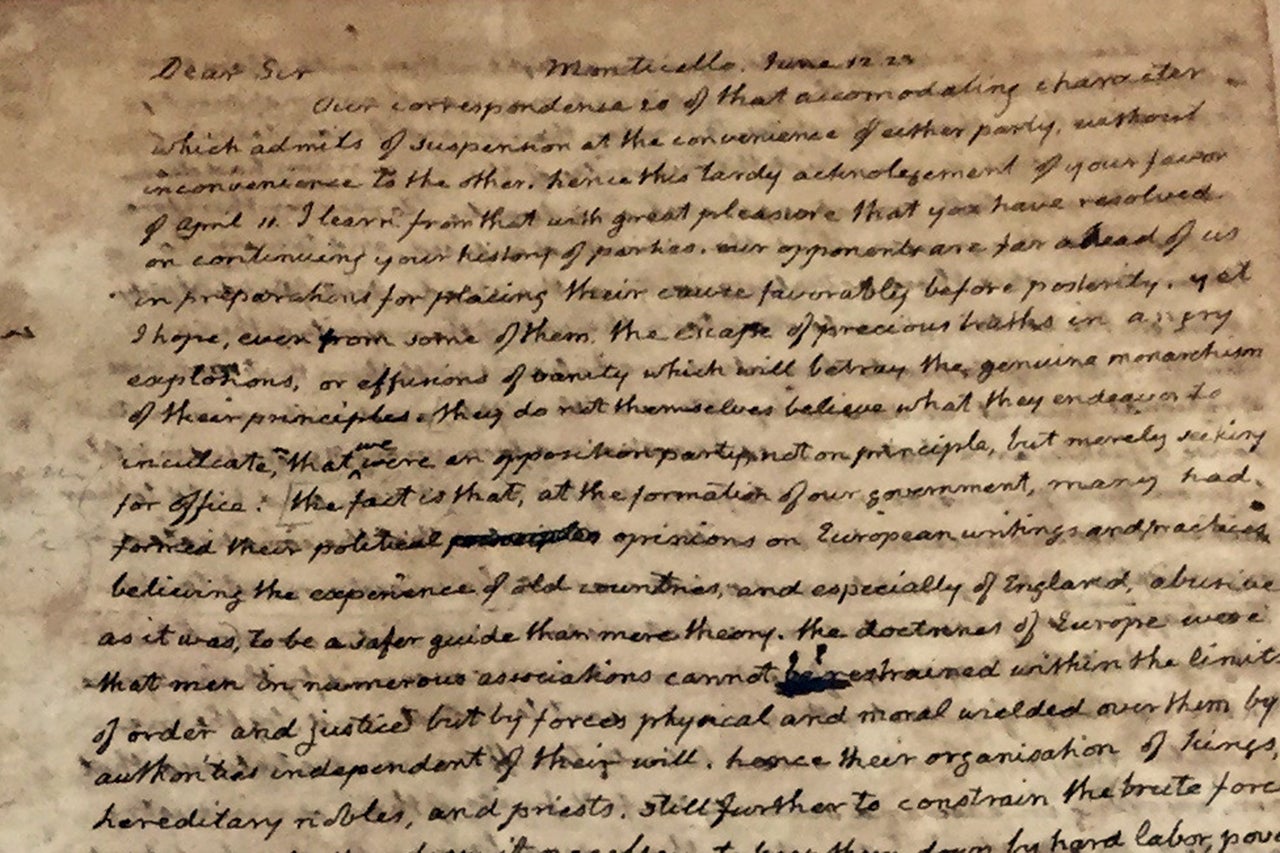Letters from our nation’s Founding Fathers can tell us a lot about our collective history. But these rare documents are also significant for what they don’t reveal – the voices and recollections of the underclass.
On a recent rainy Monday morning just before finals, students in history professor Robert Crout’s course, “Atlantic Background to the Founding Fathers,” visited Special Collections at the Marlene and Nathan Addlestone Library. There, they weighed the importance – and survival – of letters from the likes of Thomas Jefferson, Benjamin Franklin, George Washington, Alexander Hamilton, Martha Washington and South Carolina plantation entrepreneur Eliza Lucas Pinckney.
 But these weren’t transcriptions of the letters. They weren’t scanned copies either. These were the real thing – the actual paper scribed upon by the hands of historical behemoths. The rare access to the letters is the result of a partnership between the College’s Special Collections and the South Carolina Historical Society, which shares space with Special Collections on the library’s third floor.
But these weren’t transcriptions of the letters. They weren’t scanned copies either. These were the real thing – the actual paper scribed upon by the hands of historical behemoths. The rare access to the letters is the result of a partnership between the College’s Special Collections and the South Carolina Historical Society, which shares space with Special Collections on the library’s third floor.
“These records are the records of elites,” Crout explains to his class, reminding them to consider that contemporaries of the Founding Fathers with less money and less education, such as slaves and poor farmers, wouldn’t have had the luxury to leave behind correspondence.
“The documents we have in the archive often give us a view of what was happening at the top, the privileged, educated, powerful, often times male and property-holding and white,” archivist Mary Jo Fairchild ’04 (M.A. ’08) explains to the students.
Fairchild, manager of research services for the College’s Special Collections, says that “archival silence,” the absence of information from those who are socially and economically disenfranchised, has to be taken into account when you’re reading letters written by elite and powerful people.
“When we’re examining the historic record, we have to be aware of the non-neutral nature of archives,” she says. “We have to ask ourselves to read the words on the paper ‘against the grain’ to begin to develop a more inclusive understanding of voices from our past.”
The opportunity to read letters from the likes of Benjamin Franklin and Thomas Jefferson gives students the chance to consider what kind of questions a historian might ask about the record, what information the record can offer (from the handwriting to the paper itself) and the limitations of the record.
Political science major Brynne Domingo was struck by how the varied upbringings of the Founding Fathers shaped everything from their hand writing to the length they wrote. Thomas Jefferson, for example, grew up with modest means and learned to write small to conserve paper. Benjamin Franklin, on the other hand, began his career as a printer and typesetter in colonial Boston. Understanding the importance of legibility of text, Franklin had large, ornate handwriting and often wrote voluminous, multi-page letters.
“It’s interesting to consider how people used their resources based on how they grew up,” Domingo says.
Crout, who is teaching this course for the first time, says he specifically created the freshman class to coincide with the presidential election as a way to give students context between the founding of the United States government, historical documents and present day events.
“The whole idea is what is history?” Crout says. “History is studying records. If we don’t have a record, we don’t have any history.”






